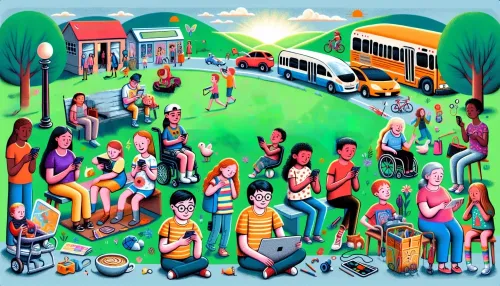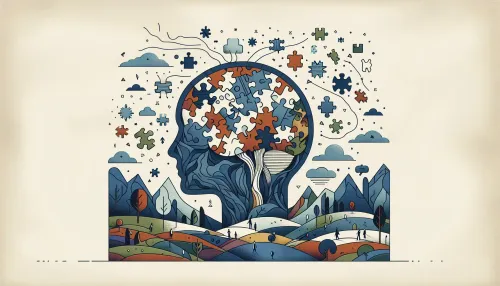Cultural Resonance and Inclusion: Redefining Autistic Identities and Perspectives Globally

Autism is a spectrum condition, reflecting the diverse ways it can impact individuals. Embracing this diversity is crucial to creating a more inclusive world for autistic children. By celebrating individuality and promoting understanding, we can reshape the public's perception of autism.
Celebrating Diversity in Autism Narratives
Inclusive narratives in media, literature, and other forms of storytelling play a pivotal role in normalizing diverse experiences. When autistic characters are portrayed with empathy and accuracy, it fosters a sense of acceptance and understanding within society. The representation of unique abilities and challenges helps break down stereotypes and encourages empathy.
Importance of Inclusive Representation in Media
Autism manifests differently across cultures, influenced by societal norms, beliefs, and values. Embracing multicultural insight allows us to understand these variations and ensure that support systems are tailored to each community's specific needs.
Cultural competence in autism advocacy involves recognizing and respecting diverse cultural practices while advocating for essential support services. As we bridge autistic experiences across borders, we acknowledge that cultural context significantly impacts the identification, diagnosis, and intervention strategies for autistic children.
Related Article: Breaking Barriers: Out-of-the-Box Approaches to Addressing Social Challenges Faced by Autistic Children
Cultural Competence in Autism Advocacy
Collaboration across borders can enrich the resources available to autistic children worldwide. When different countries share their best practices, research findings, and support models, it paves the way for comprehensive global initiatives aimed at inclusive autism care.
By fostering collaboration among professionals from various cultural backgrounds, we can develop a deeper understanding of autism's global impact. This shared knowledge facilitates the creation of more effective early intervention programs, educational resources, and support networks that cater to the diverse needs of autistic individuals.
Global Collaboration for Autism Support Initiatives
Cultural sensitivity is integral to providing tailored care for autistic children within their communities. Recognizing and respecting cultural differences is essential in ensuring that interventions and support strategies are effective and well-received.
Sharing Best Practices Across Borders
Addressing cultural sensitivity involves engaging with families from diverse cultural backgrounds to understand their unique perspectives on autism. It also entails training professionals in culturally competent practices where they can adapt interventions to align with a family's cultural beliefs, thus fostering trust and cooperation within the community.
In conclusion, embracing diversity and nurturing cultural resonance in autism advocacy are fundamental steps toward creating an inclusive world for autistic children. By fostering global collaboration, celebrating diverse narratives, and acknowledging cultural nuances, we can redefine autistic identities and perspectives on a global scale.
Frequently Asked Questions
Cultural sensitivity is vital in autism care as it ensures that interventions are tailored to the unique beliefs and practices of diverse communities. By understanding and respecting these differences, professionals can create effective support strategies that foster trust and cooperation with families, ultimately enhancing the quality of care for autistic children.
Inclusive narratives play a crucial role in shaping public perception of autism by portraying autistic individuals with empathy and accuracy. This representation helps normalize diverse experiences, breaks down stereotypes, and fosters acceptance within society, ultimately contributing to a more inclusive environment for autistic individuals.
Multicultural insight is essential in autism advocacy as it recognizes that autism manifests differently across cultures. By understanding these variations, support systems can be tailored to meet the specific needs of each community, ensuring effective identification, diagnosis, and intervention strategies for autistic children worldwide.
Check Out These Related Articles

The Role of TikTok in Shaping Autism Advocacy and Awareness Among Gen Z

Transformational Triumphs: Celebrating Autistic Children's Remarkable Achievements

Crowdsourcing Creativity: Revolutionizing Autism Support Through Collective Wisdom
